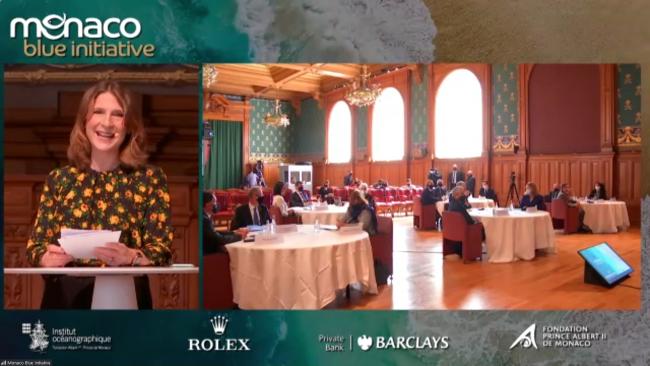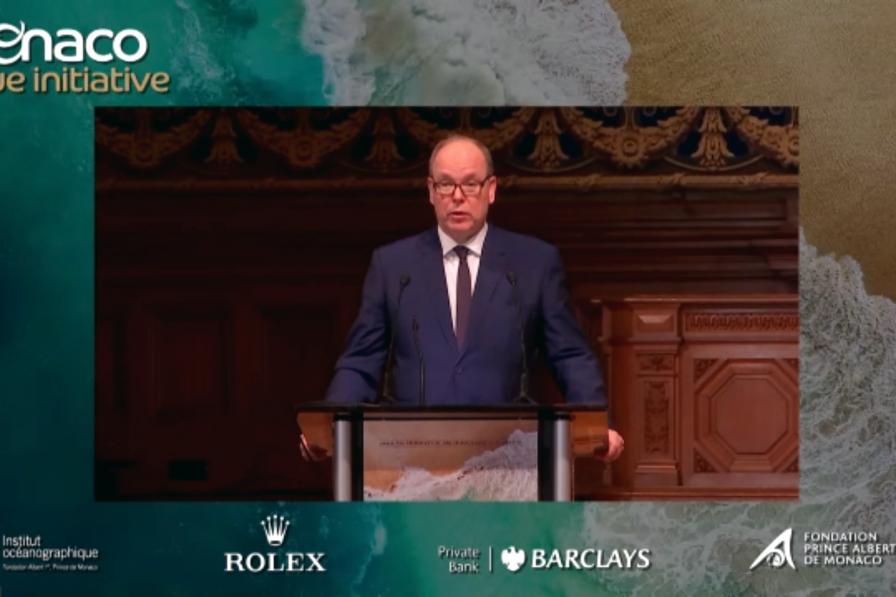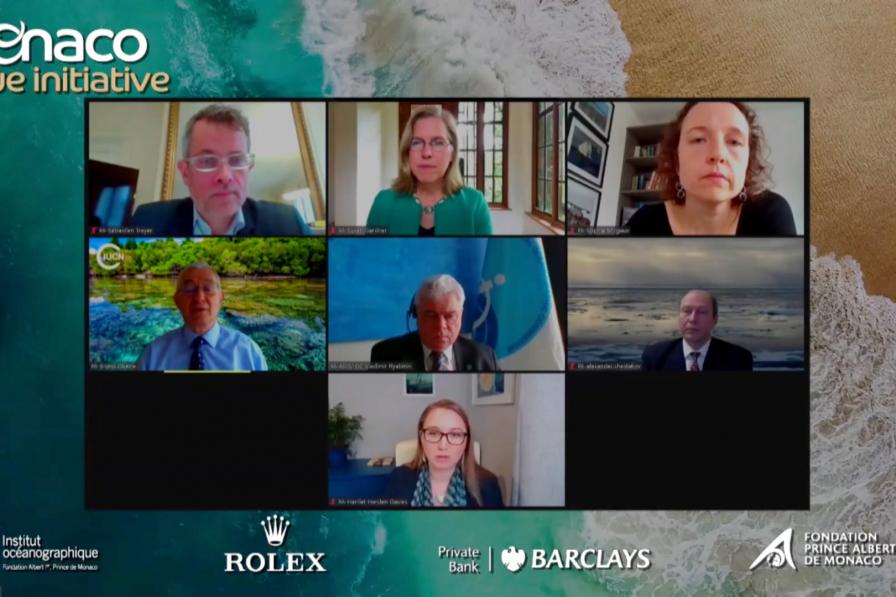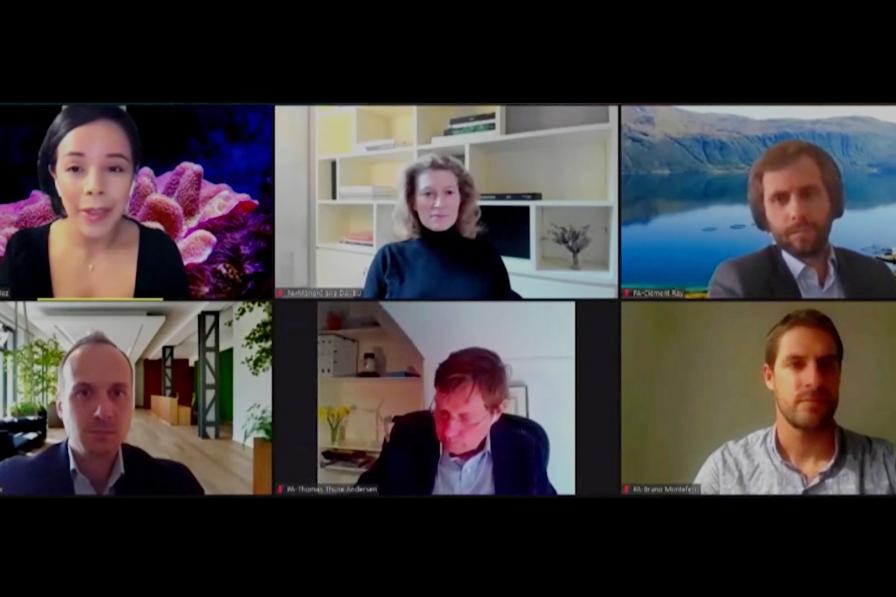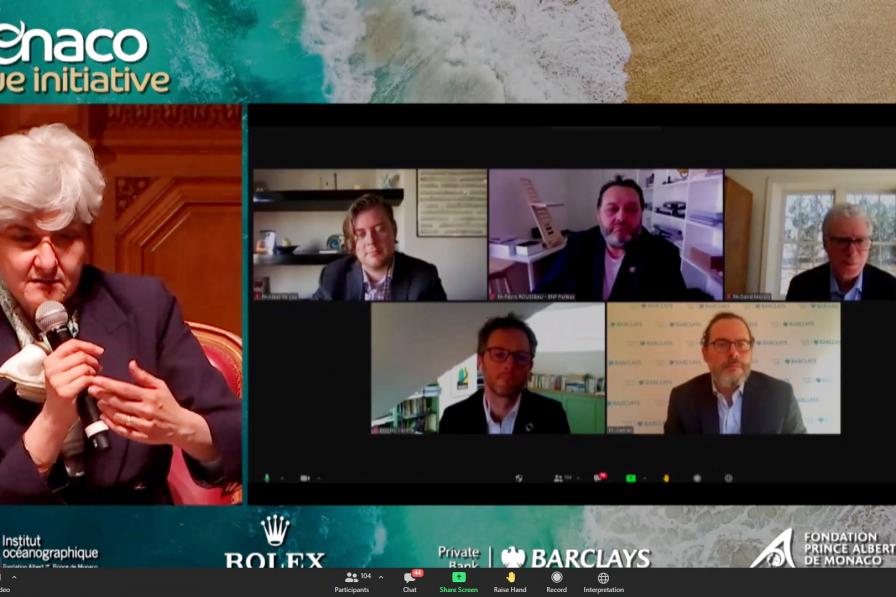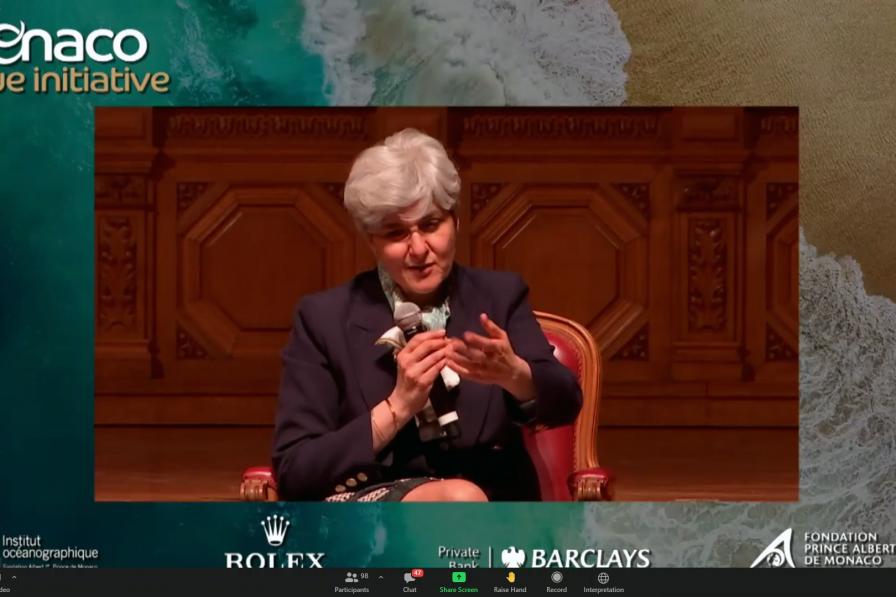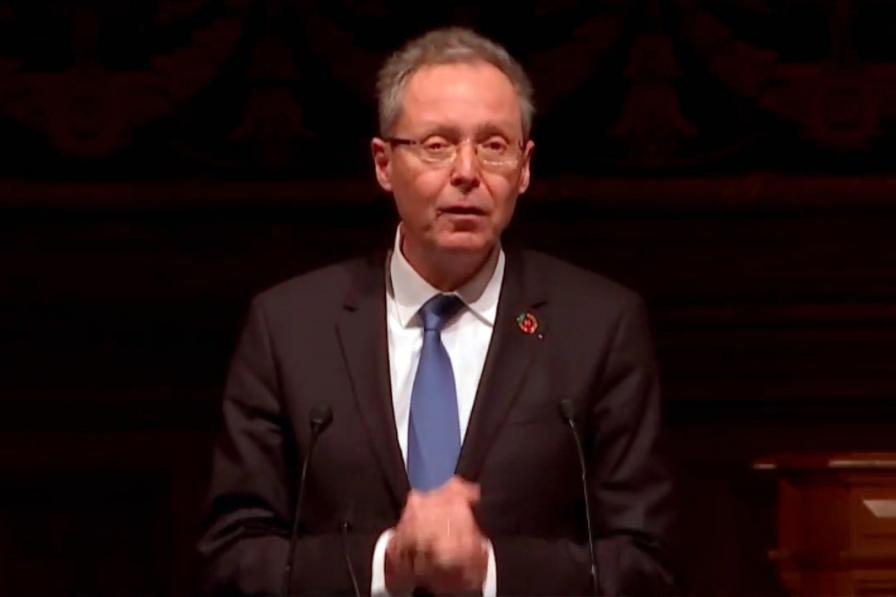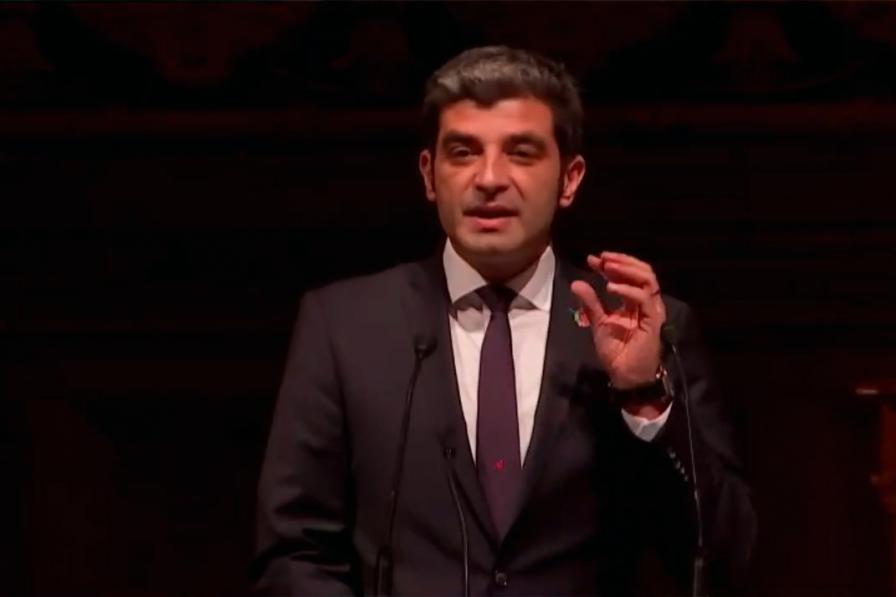The sustainable development agenda enshrined in the Sustainable Development Goal (SDGs) has experienced a wake-up call due to the COVID-19 pandemic, on the urgent need to change our interaction with nature. In the past year, the ocean agenda under SDG14 (life below water) has experienced delays in progress due to the postponement of physical meetings, such as the UN Convention on the Law of the Sea (UNCLOS) on the conservation and sustainable use of marine biological diversity of areas beyond national jurisdiction (BBNJ) and the UN Ocean Conference. On the flip side, the pandemic is also viewed as an opportunity to tailor the transformation of ocean governance and trigger financial mechanisms to scale up support for blue economy.
It is against this backdrop that the Monaco Blue Initiative (MBI) held its 12th meeting. The MBI meeting, which kicked off the fourth edition of Monaco Ocean Week, brought together representatives from governments, business sector, financial institutions and other stakeholders to debate on ocean issues.
In his welcome address, HSH Prince Albert II of Monaco said the current meeting creates an opportunity for synergies for ocean conservation, noting the stage has been set by the UN decades on Ecosystem Restoration and Ocean Science.
Session One: Role of International Negotiations for Better Ocean Governance: This session reviewed the ocean agenda of high-level international negotiations and frameworks, as well as reflected on how to create synergies to increase effectiveness. Panelists discussed the need for the post-2020 global framework for biodiversity to provide guidance on ocean stewardship. They discussed opportunities to increase dialogue and synergies in ocean conservation in the upcoming UN biodiversity and climate change meetings and the IUCN World Conservation Congress.
In a pre-recorded message, John Kerry, Special Presidential Envoy for Climate, US, referred to the ocean as a source of sustainable climate solutions. He highlighted opportunities provided by the BBNJ process, as well as other conventions and high-level meetings to “create a future for the ocean that is biodiverse, climate-resilient, and free from carbon pollution.”
Annick Girardin, French Minister of Marine Affairs, in a pre-recorded message, said improving ocean governance requires positive progress in concluding the BBNJ process in order to protect biodiversity in the high seas. The blue economy, she added, must become the cornerstone of post-COVID recovery plans.
Session Two: Integrating Oceans in Corporate Social Responsibility Strategies: This session involved representatives from the private sector and business enterprises discussing the challenges of aligning business with sustainable development of the ocean. Participants shared experiences in creating a business case for conservation through corporate social responsibility (CSR).
In a keynote address, Virginijus Sinkevičius, European Commissioner for Environment, Oceans and Fisheries, said while investing in the SDGs is more than CSR, it makes common business sense. He highlighted the European Green Deal, the EU’s long-term strategy for sustainable growth, which is built on ambitions related to carbon neutrality, circular economy, zero pollution and biodiversity restoration.
Ricardo Serrão Santos, Minister of Maritime Affairs, Portugal, in a keynote message said CSR is not only about fulfilling legal expectations but also about investing more in human capital and environmental resilience.
Session Three: From Blue Economy to Blue Finance: During this session, financial actors discussed financial mechanisms to support blue economy investments. Panelists reported challenges in ocean governance due to lack of regulatory frameworks and scientific data. They discussed ways in which progress achieved in green economy investments can be leveraged to upscale blue economy. Participants also discussed ways of moving from philanthropy to financing long-term ocean sustainability.
Carlos Eduardo Correa, Minister of Environment and Sustainable Development, Colombia, in a keynote speech, said investing in natural capital will not only generate positive impacts on biodiversity, but will also allow us to avoid economic risks, as most economic sectors depend greatly on biodiversity and ecosystem services.
Jens Frølich Holte, State Secretary, Ministry of Foreign Affairs, Norway said the ocean economy is a cornerstone of the global economy, providing millions of jobs and livelihoods. He highlighted pre-COVID-19 pandemic forecasts, which estimated that the ocean economy could add USD 3 trillion annually in gross value by 2030.
In closing remarks, Robert Calcagno, CEO, Oceanographic Institute, Prince Albert I of Monaco Foundation, said the ocean is at the heart of the environmental transition we all want to see, and that its preservation is everyone’s business. Olivier Wenden, Vice-President and CEO of the Prince Albert II of Monaco Foundation, highlighted the importance of working collectively, noting that “contradictory objectives can in fact converge, if they are approached in a coordinated manner.”
